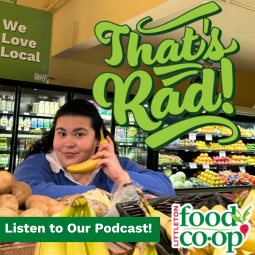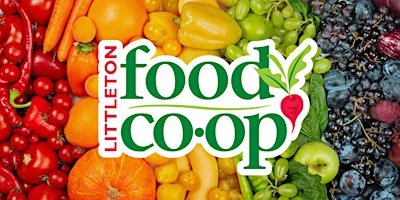Democratic Member Participation is a critical part of being a Cooperative. The Board of Directors represents YOU, so we urge all of our Members to vote in the annual Board Election.
The next Election will be Fall 2026.
The nine Directors on our Board represent our Members by steering the direction of the Co-op, and they advise our General Manager via Policy Governance. They cooperate on strategic planning and organizational well-being, vote on significant financial decisions, and participate in project committees.
Elections are typically held in late April and early May, just before our Annual Meeting. Each year 3 seats become available on the Board of Directors; candidates include incumbent directors and community members. If you’d like to become a candidate, please read more here.
Voter Eligibility
To be eligible to vote in the annual Board Election, you must:
- Be a Full Member, ie own four or more shares in the Cooperative;
- Be listed as the primary name on your Member account.
Only one ballot may be cast per Membership, and only the Primary Member listed on your account may vote. If you have a secondary name listed on your account, or other household members who “borrow” your account, it can cause lots of confusion at election time. You will not be able to cast your ballot if someone has already done so using your Member number.
If you haven’t done so already, election season is a great opportunity to **@***********op.org“>check and update your Membership information, make sure your Primary Name, mailing address, and email are correct, acquire more shares, become a full Member, and make your voice heard in the oversight and direction of your Co-op.
How to Vote
We use a website called Simply Voting to handle our Board Elections. Eligible Members will receive either a mailed letter and/or an email from Simply Voting. This will include information about the election, along with a password to access the Simply Voting website. You will need to know your Member number and have this password in order to cast your ballot; only one ballot is permitted per Membership. Your information is kept private, and only used for the purposes of the Election.
Have questions? Don’t have internet access? Didn’t get a letter or an email from Simply Voting? Please reach out to our Membership Coordinator, Becky Colpitts, for assistance. Contact in**@***********op.org, or call 603-444-2800 and leave a message with the Service Desk. Note that it is best to call or email us, since we are not always immediately available for walk-in inquiries.
If you don’t have a computer or access to the internet, paper ballots will be available by request at the Service Desk during the voting period. Simply fill out a ballot, and we will enter your votes into the online system on your behalf.
Didn’t get a letter from Simply Voting? It’s most likely one of these reasons:
- Your contact information is not up to date in our records;
- You are not listed as the Primary Member on your account;
- You own less than 4 shares, which means you are not eligible to vote;
- You very recently purchased a brand new Membership;
- You very recently upgraded to Full Membership.
Again, feel free to reach out and we can help! We can easily adjust your contact information, check the name on your account, check how many shares you own, help you purchase additional shares, and more. If you’re a new Full Member you probably missed the first round of election notices, so keep an eye on your email inbox – you should receive an email from Simply Voting before the election ends. We are also able to cast votes manually on your behalf.
Meet the Candidates
More information about this year’s candidates will be available in Fall 2026





